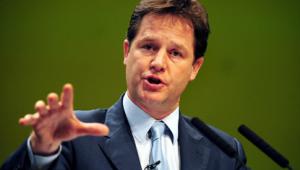04 February 2000
As the furore over the role of the Freedom Party in Austria's new coalition government continued this week, it was clear the administration will take a fiscal course designed to reduce the country's Sch70bn (e5bn) public sector deficit.
Up to 9,000 public sector jobs could be lost, a privatisation programme launched and public spending slashed by Sch235bn in the next four years as Austria seeks to meet fiscal convergence on the single currency. Many of the jobs would be lost among public sector administration posts.
The People's Party's Wolfgang Schüssel – likely to be Austria's next chancellor – said at the weekend that the budget cuts had been agreed with right-wing Jörg Haider's Freedom Party, his potential coalition partner.
In a move designed to reassure the country's ten euro zone partners, Schüssel said Austria remained committed to Europe financially and politically. 'A government in which I am a member would always give a clear “yes” to Europe, European Union enlargement, democratic values, the principles of the EU and the single currency,' said Schüssel.
Austria has been battling to control its deficit for the past few years. It has set a target to cut its deficit to 1.7% of gross domestic product for Economic and Monetary Union membership. Currently it stands at about 2.5% and has grown recently as welfare spending has increased in the past year.
Schüssel, though, has vowed to quicken spending cuts begun by the outgoing Social Democratic-led government. Calling the current situation 'dramatic', he said savings would be made 'exclusively on the spending side'.
Meeting euro fiscal criteria is vitally important to Austria. Since joining the European Union in 1995, its trade with EU partners has grown to account for two-thirds of all its economic dealings.
Despite the size of the budget, unemployment is falling and the latest report from the Organisation for Economic Co-operation and Development last November described the economy as 'impressive'.
By David Harding
PFfeb2000


















